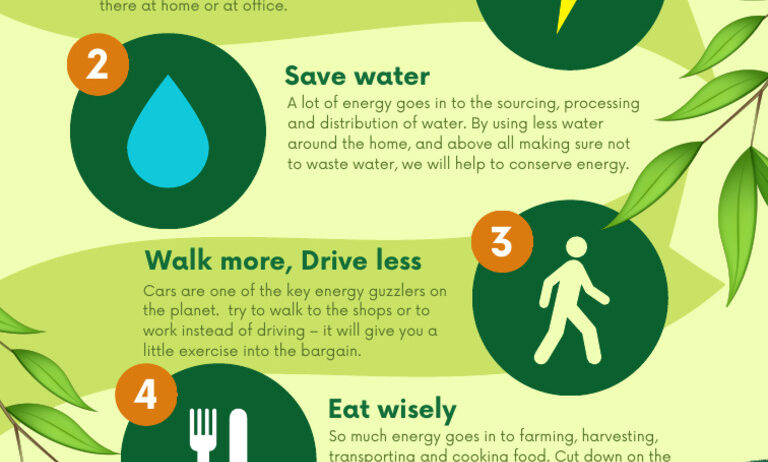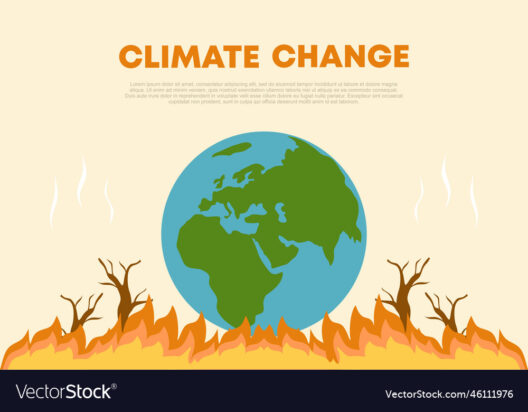Energy conservation is not merely an abstract concept but a tangible practice that can be seamlessly integrated into our daily lives. Many individuals underestimate their capacity to make significant changes within their households and communities. However, small, collective efforts can culminate in prodigious impacts. Herein are five straightforward yet effective strategies for conserving energy that every person can adopt.
1. Optimize Household Efficiency
The efficiency of a household’s energy use can be vastly improved through strategic planning and minor modifications. Begin with the simplest endeavor: replacing incandescent bulbs with energy-efficient LED lighting. LEDs consume considerably less energy and possess a longer lifespan, which minimizes waste, both materially and environmentally. Additionally, consider the use of programmable thermostats. These devices allow for tailored heating and cooling schedules that align with your routine, thereby reducing energy wastage while maintaining comfort.
Furthermore, ensure that appliances are used judiciously. Unplugging devices when not in use—a practice often referred to as “phantom load” management—can mitigate energy consumption. Many gadgets continue to consume electricity even when turned off but still plugged in. By employing power strips to facilitate easy disconnection, you can swiftly reduce this hidden energy drain.
2. Embrace Renewable Energy Sources
Transitioning from conventional energy sources to renewable alternatives presents an opportunity for extensive savings and environmental benefits. Solar panels, while initially an investment, often reduce energy bills drastically once installed. With ample sunlight available in many regions, capturing this inexhaustible resource is both prudent and proactive. Wind energy has also gained traction; small wind turbines can be installed in appropriate locales to supplement energy needs.
Moreover, advocating for community solar programs or cooperative wind energy projects can extend the benefits to those unable to install systems on their own properties. Such communal efforts not only bolster local economies but also enhance energy security. By contributing to a sustainable energy landscape, individuals become part of a larger movement toward ecological responsibility.
3. Rethink Transportation Choices
The transportation sector contributes a significant portion of total energy consumption. Thus, it is vital to rethink our mobility choices. Carpooling, using public transportation, biking, or walking when feasible diminishes dependency on individual vehicles, which both conserves energy and reduces greenhouse gas emissions. For longer distances, consider hybrid or electric vehicles that utilize cleaner energy sources, further diminishing your carbon footprint.
In urban environments, the development of infrastructure that supports non-motorized transport is crucial. Advocating for bike paths and pedestrian zones not only promotes healthier lifestyles but also engenders a community culture that prioritizes sustainability. By cultivating alternative modes of transit, society can transition away from fossil fuel reliance, allowing for cleaner air and a more sustainable future.
4. Educate and Advocate for Energy Conservation
Education serves as a catalyst for transformation. By informing oneself and others about the importance of energy conservation, a ripple effect can instigate broader societal change. Hosting workshops or community discussions on effective conservation techniques can galvanize others into action. Utilize online platforms to disseminate valuable information on energy-saving practices and advances in sustainable technologies.
Moreover, advocacy plays a critical role in securing energy efficiency at a structural level. Engage in local governance to promote initiatives aimed at reducing energy consumption. Policies that incentivize energy-efficient upgrades for homes and businesses can catalyze widespread adoption of sustainability practices. Collective voices advocating for stronger regulatory frameworks can significantly influence energy management strategies and foster a culture of responsibility.
5. Implement Mindful Consumption Habits
Lastly, fostering a mindset of mindful consumption can further contribute to energy conservation. This involves reassessing the necessity of energy use in day-to-day life. For instance, turning off lights in unoccupied rooms and setting water heaters to optimal rather than maximum temperatures can conserve substantial amounts of energy. Such practices extend beyond the mere act of saving energy; they promote an ethos of responsibility and intentionality.
Additionally, technology can facilitate mindful energy use. Apps and tools that track energy consumption provide insights into patterns and areas that require improvement. By understanding energy use metrics, individuals can make informed decisions that lead to reduced consumption. This proactive approach not only benefits the environment but also fosters financial savings.
Energy conservation is not an insurmountable challenge but rather a series of attainable actions that promote sustainability. Each person has the capacity to influence the broader ecological narrative through habits and choices. By optimizing household efficiency, embracing renewable sources, rethinking transportation, educating and advocating, and implementing mindful consumption, we can collectively create a sustainable future. Each action, no matter how small, resonates within a larger context, contributing to energy conservation’s profound importance in fostering environmental stewardship for generations to come.








